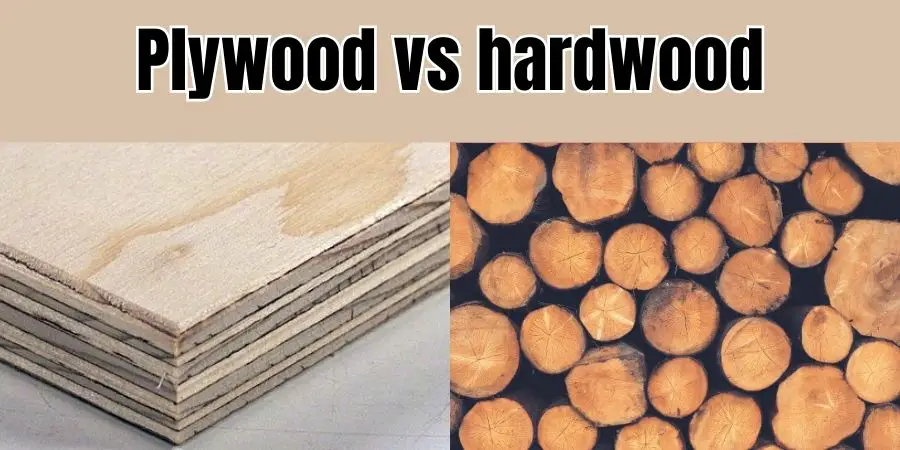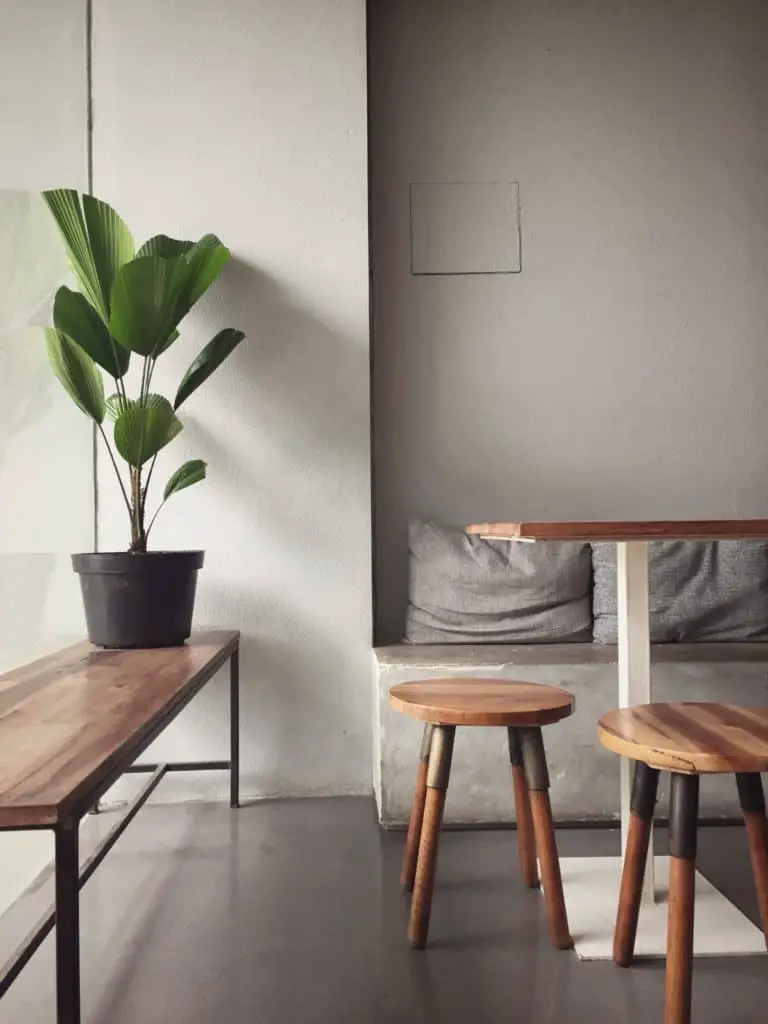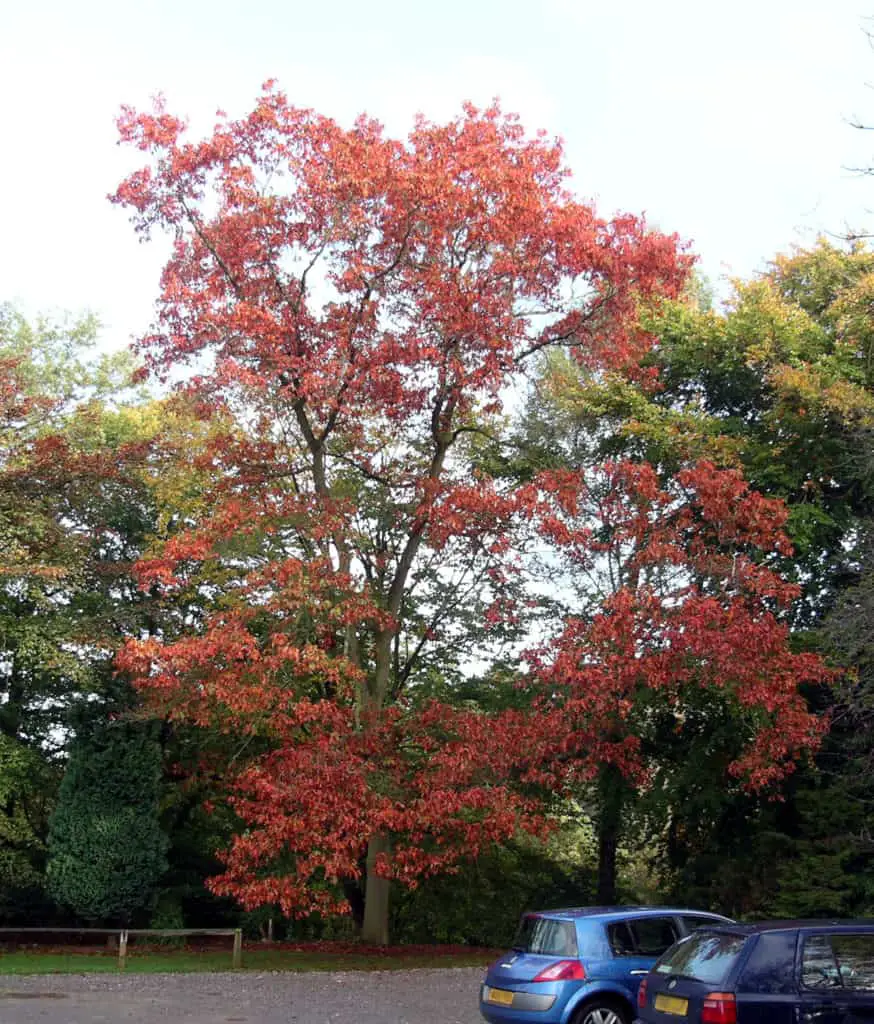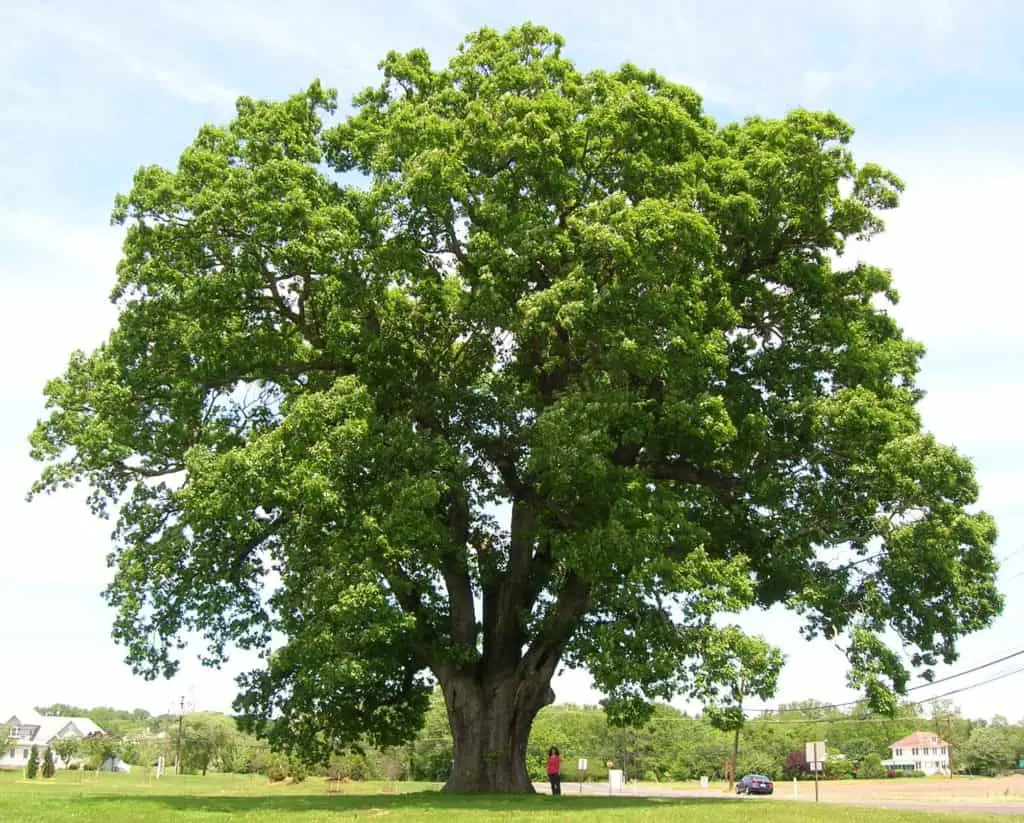If you are thinking that is plywood the same as hardwood?
Then the answer is no. The both are different. One is engineered wood, made in a facotory while other is a term used for some kind of natural woods.
Here’s what you need to know
Table of Contents
Plywood vs Hardwood
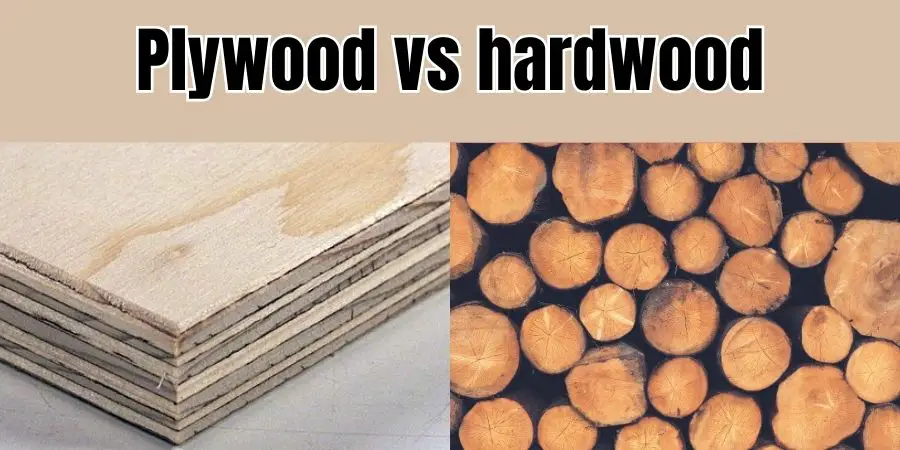
Plywood is like a sandwich made of wood. It is made by gluing together thin sheets of wood, one on top of the other, with the grain patterns going in different directions.
Fun Fact
Plywood can be made from any wood, like hardwoods such as maple, cherry, or softwoods such as pinewood.
In fact,there is a type of plywood known as hardwood plywood, which is made by using hardwood veneers for the outer layers.
This type of plywood offers some of the benefits of hardwood, such as a more attractive appearance and increased durability.
Hardwood, on the other hand, is a term used for woods that come from trees like oak, maple, and cherry.
These are used for things like flooring and furniture because it is strong, durable, and looks really nice.
So, the main difference between plywood and hardwood is that:
- plywood is made by gluing thin sheets of wood together,
- While hardwood is a type of wood that comes from certain trees.
Choosing between Plywood and Hardwood: Factors to Consider
When choosing between plywood and hardwood for your project, there are several factors to consider. Here are some things to keep in mind:
Hardwood vs Plywood: Uses
Hardwood is often used for high-end furniture, cabinetry, and flooring due to its natural beauty and durability. It can also be used for outdoor projects like decks and fences, as well as structural applications like beams and posts.
Plywood is commonly used for sheathing, subflooring, and roofing in construction projects. It can also be used for cabinetry, furniture, and decorative panels. Marine-grade plywood is specifically designed for boat building and other applications that require high water resistance.
Hardwood vs Plywood: Composition
Hardwood is a solid wood product that comes from trees. It is typically made by sawing or planing the wood into boards or planks, which are then used in construction or furniture making. Hardwood is known for its strength, durability, and natural beauty.
Plywood, on the other hand, is made from thin layers of wood veneer that are glued together. The layers are oriented in alternating directions to improve the strength and stability of the final product. Plywood is known for its strength, affordability, and versatility.
Hardwood vs Plywood: Appearance
Hardwood has a distinct natural beauty that comes from its grain patterns and color variations. Each species of hardwood has its unique characteristics that can add to the aesthetic appeal of a project. Hardwood can also be finished in a variety of ways to bring out its natural beauty.
Plywood, on the other hand, has a uniform appearance due to its composition. It lacks the natural variation of hardwood but can still be used for decorative purposes with the right finish. Plywood can also be manufactured with different grades of veneer, which can affect its appearance and quality.
Hardwood vs Plywood: Strength and Durability
Hardwood is known for its strength and durability. It is less prone to warping or splitting than plywood and can withstand heavy loads and wear and tear over time. Hardwood is also naturally resistant to moisture, making it an excellent choice for outdoor projects.
Plywood, however, can be engineered to be even stronger than hardwood in some applications. It can withstand impact and wear and tear better than solid wood and can be designed to resist moisture and other environmental factors. However, plywood can be prone to delamination or splitting if not manufactured to high standards.
Hardwood vs Plywood: Cost
Hardwood is generally more expensive than plywood due to its natural beauty, strength, and durability. The price of hardwood can vary depending on the species, grade, and availability.
Plywood, on the other hand, is generally more affordable than hardwood due to its composition and manufacturing process. However, high-quality plywood can still be costly, especially if it is designed for specific applications like marine-grade plywood.
Which one should you choose
Choose Hardwood for:
- Flooring: Hardwood is an excellent choice for flooring due to its durability and natural beauty. It comes in a wide variety of species and finishes to suit any style.
- Cabinetry: Hardwood can be used for high-end cabinetry due to its strength and resistance to wear and tear.
- Furniture: Hardwood is often used for high-quality furniture due to its natural beauty and durability.
- Decks and outdoor projects: Hardwood can be used for outdoor projects like decks and fences due to its natural resistance to rot and decay.
Choose Plywood for:
- Construction: Plywood is commonly used for sheathing, subflooring, and roofing in construction projects due to its strength and durability.
- Cabinetry and furniture: Plywood can be used for cabinetry and furniture due to its affordability and ease of use.
- Decorative panels: Plywood can be used to create decorative panels due to its ability to be easily cut and shaped.
- Marine applications: Marine-grade plywood is designed for boat building and other applications that require high water resistance.
Hardwoods vs plywood- Pros and cons
Pros of Hardwood:
- Hardwood is strong, durable, and long-lasting.
- It has a natural beauty and aesthetic appeal.
- Hardwood is available in a wide variety of colors and textures.
Cons of Hardwood:
- Hardwood can be expensive, especially for high-quality varieties.
- It may be prone to warping or cracking if not properly treated and maintained.
- Hardwood is not always readily available in certain areas.
Pros of Plywood:
- Plywood is generally less expensive than hardwood.
- It is strong, durable, and resistant to warping or cracking.
- Plywood is available in a wide range of thicknesses, sizes, and grades.
Cons of Plywood:
- The aesthetic appeal of plywood may not be as desirable as hardwood.
- Low-quality plywood may have voids or gaps in the layers that can weaken the material.
- Plywood may not have the same natural beauty or texture as hardwood.

